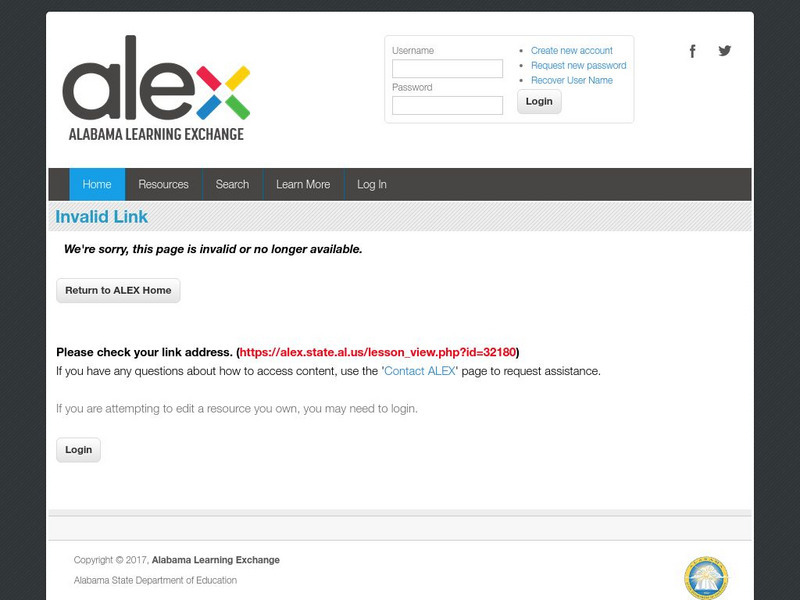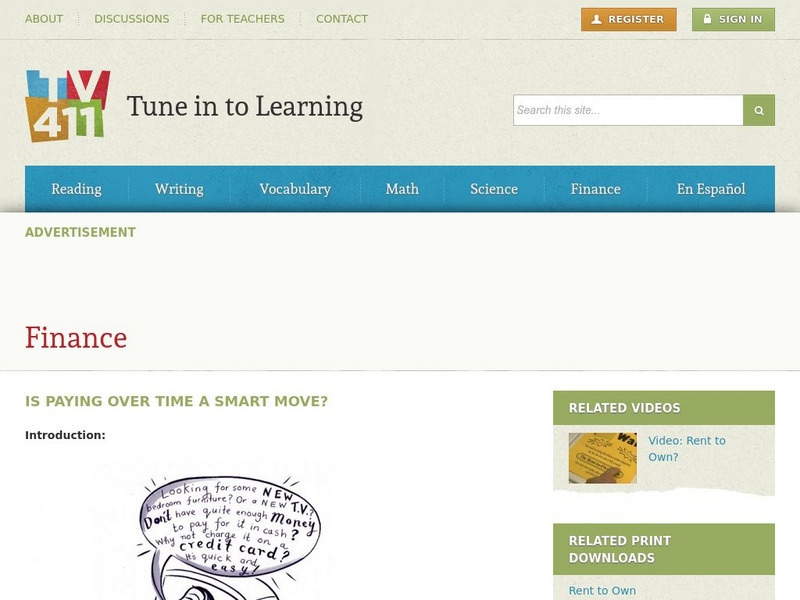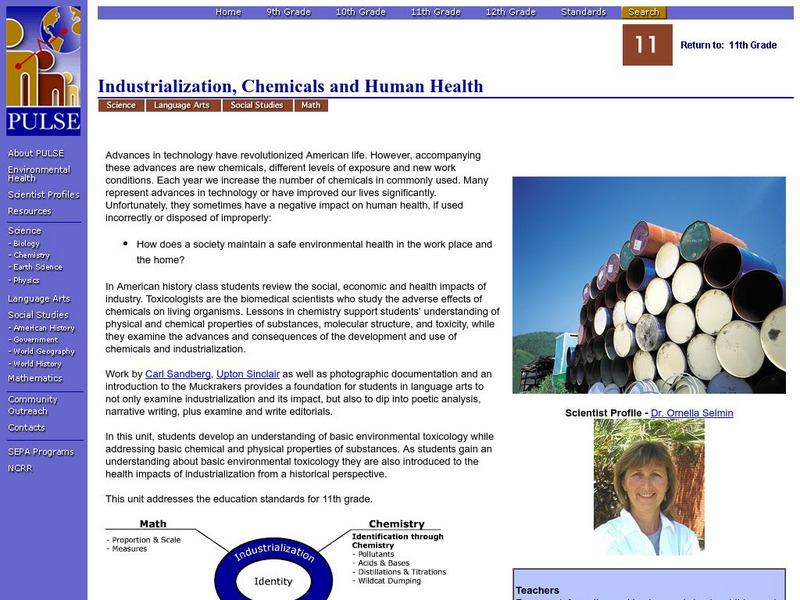Curated OER
Free Enterprise -- Product Cost
Students are introduced to the concept of free enterprise. In groups, they discuss the price of various food items and decide on which item to produce. They calculate the cost of producing the item and share their results with the class.
Curated OER
Fairness in Taxes
Students identify and describe two criterion of tax fairness: benefits received and the ability to pay and distinguish between wealth and income as measures of ability to pay.
Curated OER
What is Taxed and Why
Students are exposed to the need for federal, state and local governments to tax constituents to provide goods and services for their residents. They identify the different kinds of taxes and give examples of the goods and services taxed.
Curated OER
The Taxpayer's Rights
Students examine rights of taxpayers and procedures the IRS uses to process tax returns
Curated OER
The Taxpayer's Responsibilities
Students explore system of voluntary compliance, and describe taxpayers' responsibilities related to filing a tax return.
Curated OER
The Wealth Tax of 1935 and the Victory Tax of 1942
Pupils explain that during the Great Depression and World War II, the Roosevelt administration implemented new, broader, and more progressive taxes in order to cover the costs of the New Deal programs and the war.
Curated OER
Adaptable Mandibles
Students define adaptation and highlight example of adaptation in birds and other animals. They study feeding techniques of seabirds and investigate the effect that trash has on wildlife.
Curated OER
Community Action
Fifth graders brainstorm a list of decisions that students make daily that affect the welfare of the environment categorizing them as being either helpful or harmful. They then trace local actions to distant consequences to determine how...
Curated OER
Environment: The Haves and the Have Nots
Students examine consumption habits in developed and developing countries and determine their effects on natural resources. In groups, they assess graphs on the Living Planet Report and observe the connection between consumption and...
Other
Kodak Lesson Plans: Math
Kodak's site has five lesson plans integrating photography into math lessons. Activities involve geometry and other math concepts for fourth grade on up.
Scholastic
Scholastic: Adventures in Math: Lesson 2: Saving Money by Finding the Better Buy
Students will be able to make economically sound purchasing decisions by using unit pricing, calculating discounts, and analyzing fixed and variable costs.
Better Lesson
Better Lesson: Going on a Math Hunt
Second graders ask questions of adults they know about how they use math, then students will design a method to share what they have found.
Alabama Learning Exchange
Alex: Becoming a Wise Consumer: Comparison Shopping
In this introductory lesson to money management for teens, students will use everyday math skills to comparison shop a variety of products. Students will learn several ways to save money, including using store discounts, coupons, and...
Other
Federal Reserve Bank of New York: Econ Explorers Journal [Pdf]
In this collection of lesson activities, students will complete an "Econ Explorers Journal" to help them learn how economics is involved in their neighborhood, the books they read, in earning a living, at their banks, in their homes, and...
Michigan State University
Michigan State University: Lets Net: Fat Counting Unit
Have you ever wanted to know how much fat you consume each day? How does that fat fit into your daily intake according to the food pyramid? 4 math lessons are included here that help both upper and lower elementary grades understand how...
Education Development Center
Tune in to Learning: Is Paying Over Time a Smart Move?
At T.V. 411 you can explore the concept of paying over time with situations involving credit cards, rent to own items, and more. This interactive lesson gives the learner an opportunity to make decisions about money management.
University of Arizona
Pulse: Industrialization, Chemicals and Human Health
While students gain an understand of basic environmental toxicology, they explore the health impacts of industrialization on society in these lessons. This is a cross curricular unit that addresses standards for eleventh grade in math,...
Council for Economic Education
Econ Ed Link: Forecasting Economics
Can you learn economics from the weather? Students will be able to integrate science, math, and economics through this engaging instructional activity. The forecast predicts some percentage chance of success.
Albright-Knox Art Gallery
Albright Knox Art Gallery: Can It?
Pop artists used consumer products, advertising, and popular culture icons as the major source for subject matter in their art. Between 1962 and 1967, Andy Warhol painted soup cans, both individually and in groups. 100 Cans is one of the...
University of Nebraska Omaha
Ec Ed Web: How Can Big Business Make Money From Tariffs?
In this activity, students investigate the impact of tariffs on businesses and consumers during the 1880s by looking at a political cartoon, solving a short math problem, and comparing protectionism between time periods. They then...
Gulf of Maine Research Institute
Human Impact: Oil Consumption
Lesson plan allows students to practice their math skills by calculating how many barrels of oil they and their families consume.
















